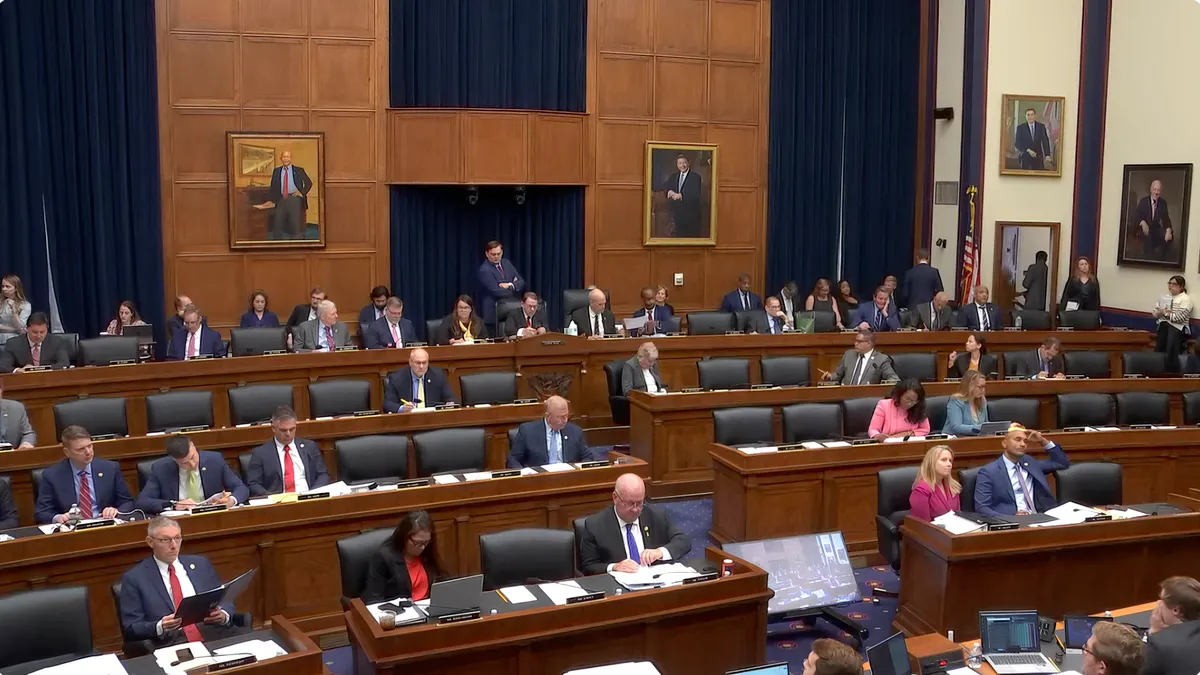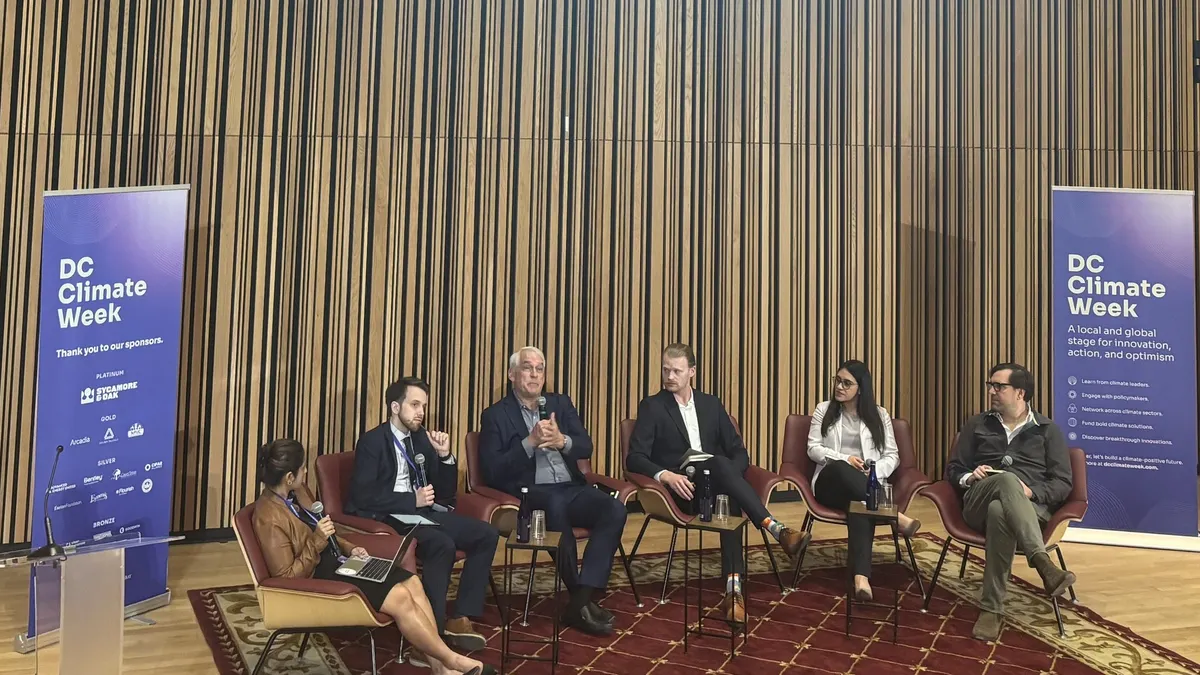A federal judge ruled Friday that American Airlines violated its fiduciary duty to loyalty in a class-action lawsuit brought by one of its pilots over the company's retirement plans’ alleged ESG considerations, according to court documents.
American Airlines pilot Bryan Spence originally filed the lawsuit in Texas’ Northern District Court in August 2023, and the airline faced multiple setbacks in the case throughout 2024.
Throughout the lawsuit, Spence has alleged that American Airlines violated its duty to prudence by failing to monitor the proxy voting of its investment managers, including BlackRock. Additionally, he argued American Airlines' ESG goals created a corporate conflict of interest when combined with ESG considerations made by BlackRock and others.
Judge Reed O’Connor found American Airlines fulfilled its duty of prudence and the airlines’ processes were "consistent with and, in many aspects, exceeded the processes of other fiduciaries.”
However, O’Connor said American Airlines acted disloyally “by failing to keep American’s own corporate interests separate from their fiduciary responsibilities, resulting in impermissible cross-pollination of interests and influence on the management of the Plan.”
American Airlines’ motion to dismiss the case was denied last February, and a similar motion for summary judgment also failed. The case was later certified as a class-action lawsuit in May, covering all participants of American Airlines’ pilot retirement plan and employee pension fund.
During a four-day trial in the fall, it was discovered that American Airlines’ fiduciaries had not received quarterly reports from BlackRock on its proxy voting attestations, some of which included guidelines that expressly incorporated ESG considerations, according to the ruling. O’Connor, however, found that this was not a violation of American Airlines’ duty to monitor, as committees for such retirement plans “rarely, if ever,” devote committee time to reviewing the proxy decisions of independent investment managers.
The damages for the case are yet undetermined, as O’Connor continues to consider how much weight to give the testimony of one of Spence’s experts, as well as other factors to determine “what losses, if any, occurred.”
An American Airlines spokesperson said in an emailed statement to ESG Dive Wednesday that BlackRock’s role in the company’s 401(k) plan is limited to managing passive index funds and “the ruling focuses on American’s oversight of BlackRock’s proxy voting, which aligns with industry best practices.”
“American has never offered ESG investment options in our 401(k) plan,” the spokesperson said. “In fact, the committee that considers investments for our plan has expressly rejected ESG investments. … We remain committed to responsibly managing our team members’ retirement savings with appropriate oversight.”
Legal experts and investment managers have since expressed concerns that the ruling will open a floodgate to more lawsuits questioning corporations’ fiduciary duties with respect to ESG.
Andy Poreda, senior research analyst for investment management firm Sage Advisory, said in an interview Wednesday he initially thought the lawsuit was a “frivolous case, based on best practices.” However, with the ruling, Poreda said, “the bar is being set really low for what's a violation of fiduciary duty, without really any justification to prove it.”
O’Connor’s ruling introduces a definition of ESG that he summarizes by saying, “ESG investing is a strategy that considers or pursues a non-pecuniary interest as an end itself rather than as a means to some financial end.” However, Poreda and others pushed back on that finding.
“ESG has not been sold in the U.S. as this way of enacting an environmental or social cause,” Poreda told ESG Dive. “For the most part, when you look at the justification, the records and the reasoning behind it, there's a lot of merit to why [investment managers] vote on certain decisions.”
“If you look at Blackrock’s voting record in 2021, they weren't voting ‘yes’ to every ESG-related issue,” he continued. “They were picking and choosing which ones they thought were a value add, and you have others that voted in concert with them.”
Victor Flatt, Case Western Reserve University’s environmental law chair, said in an interview Wednesday that O’Connor’s ruling frames legal questions and “characterizes them as determinations of fact rather than conclusions of law.”
Flatt said such characterizations as findings of fact, in instances like ESG’s definition and a finding that BlackRock was engaging in “ESG activism,” may insulate some of his ruling from an appeals review. Appeals courts are only able to overturn findings of fact “if there’s a clear error,” Flatt said, while findings of law are able to be overturned on review.
Poreda said “plan sponsors should be concerned” if the ruling holds up in the Court of Appeals, which Flatt also considers possible. Flatt said plan sponsors will have to more closely monitor and review the shareholder activism plans of their pension funds’ investment managers to look to protect themselves from claims of disloyalty.
Additionally, Flatt said pension plan fiduciaries will have to more carefully scrutinize how much they are allowed to or prohibited from saying they consider ESG factors.
“This is part of a much bigger political question about fights over what impacts the bottom line for a company,” Flatt said. “One side wants to say [that] social policies, environmental policies, have nothing to do with the bottom line, and the other side says it does. And this is really a big fight about that.”




















